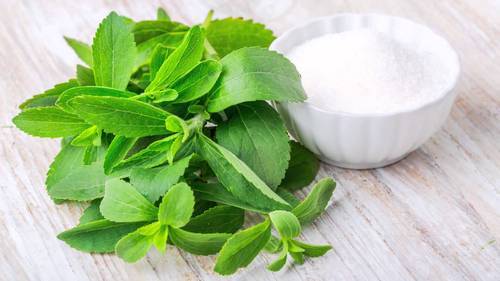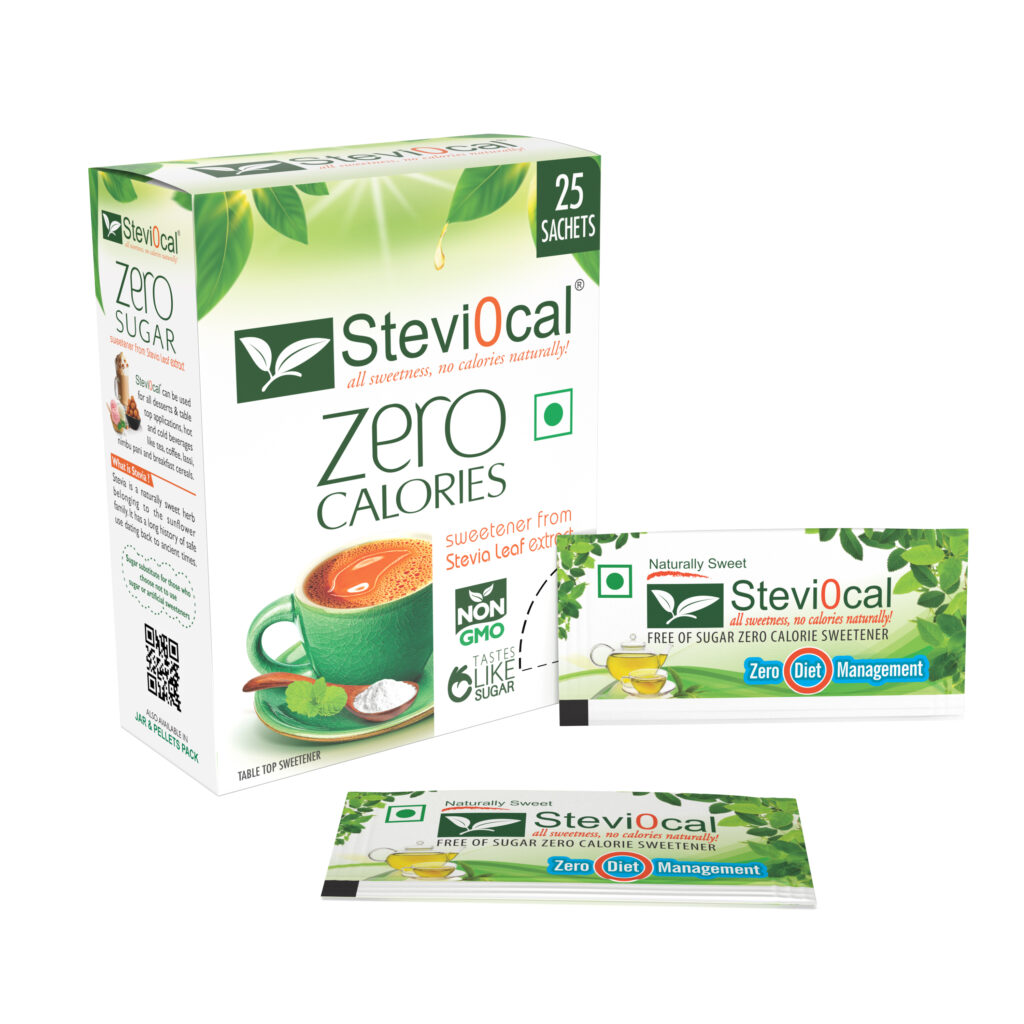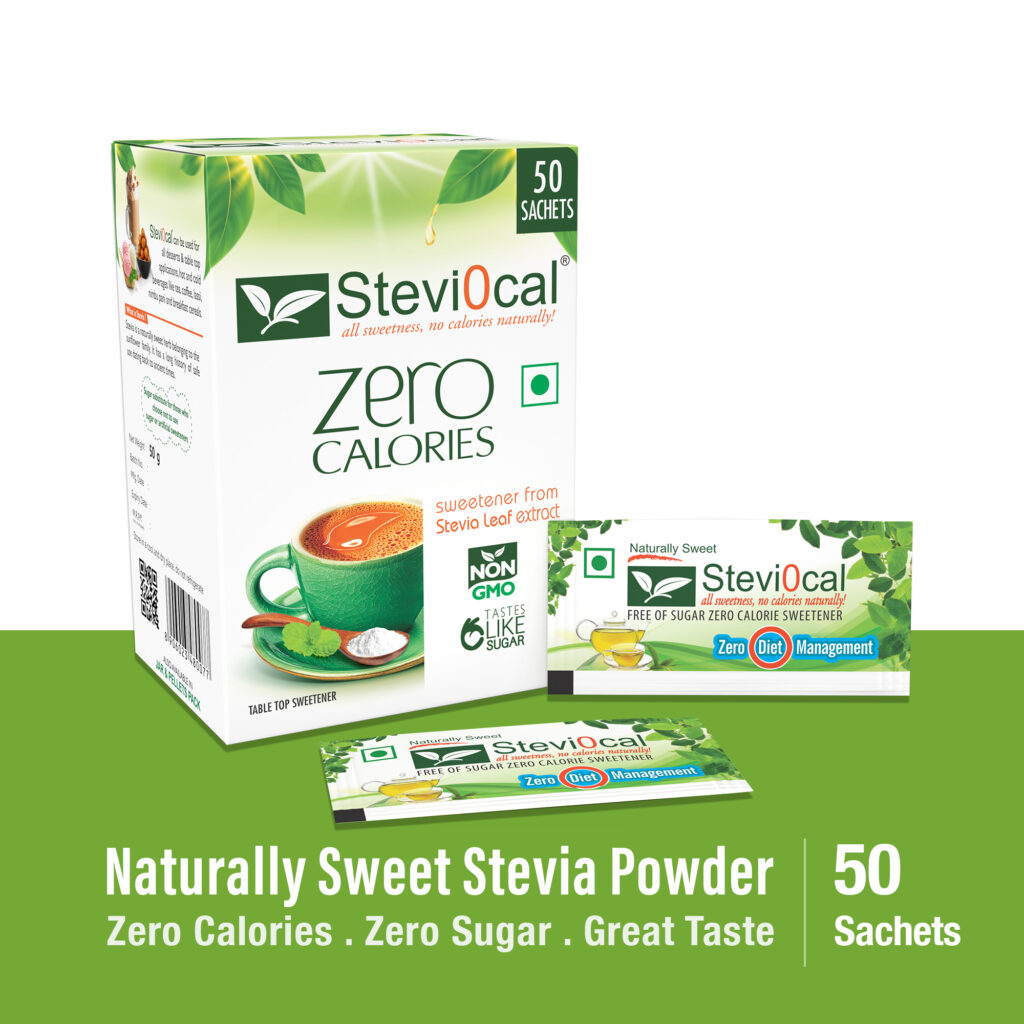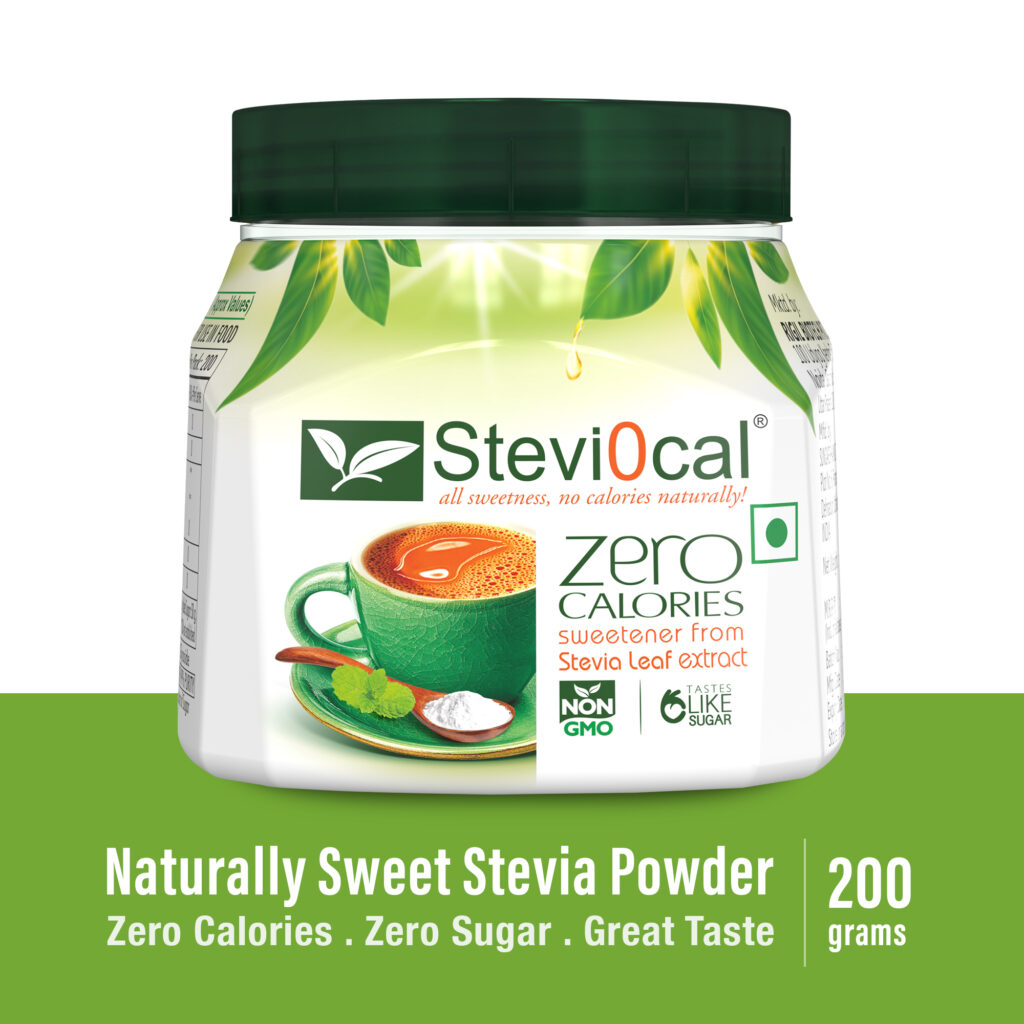Everything You Need to Know About Stevia. (Part II)
The groundwork of all happiness is health. Eating healthy is the best choice to make for your diet. It is vital for good health and can reduce the risk of numerous chronic health conditions. For the same it has a long tough road, so to help you out, we’ve put together a list of the health benefits of stevia.
Health Benefits of Stevia
A non-nutritive sweetener is one that contains negligible or no calories. Stevia is classified as a zero-calorie sweetener as it has significantly less calorific than sucrose and is low enough to be classified as such. It’s a non-nutritive sweetener used as a healthy alternative to added sugar in almost all kinds of food and beverages because it is 200-300 times sweeter than table sugar. The impact of non-nutritive sweeteners on an individual’s health depends on the amount that is consumed, as well as the quality of the sweetener.
Here are some of the possible health benefits of Stevia.
- Allergies: In the year 2010, the European Food Safety Committee (EFSA) reviewed existing studies to determine if there was any cause for concern regarding the potential for possible allergic reactions to stevia. According to the reviewers, steviol glycosides are in a class of compounds that do not react with other ingredients in food. Furthermore, they reported that steviol glycosides do not metabolize into substances that would cause an allergic reaction. Even highly purified forms of the stevia extract are unlikely to cause allergic reactions. Since 2008, there have been no known cases of allergic reactions recorded after consuming stevia.
- Diabetes: Research has shown that stevia based sweeteners, which are non-caloric or have a minimal number of calories, do not contribute carbohydrates to the diet. They have also demonstrated no effect on blood glucose or insulin response. This allows people with diabetes to eat a wider variety of foods and comply with a healthful meal plan. Several studies have looked at the effect of stevia on diabetes. One study reported that when subjects with type 2 diabetes consumed meals sweetened with stevia, their blood sugar levels were significantly lower than in those who consumed meals sweetened with other types of sweeteners. Another review of five randomized controlled trials compared the effects of stevia on metabolic outcomes with the effects of placebos. The study concluded that stevia showed minimal to no effects on blood glucose, insulin levels, blood pressure, and body weight. These researches suggest that stevia is an ideal sugar replacement for diabetics.
- Children’s diets: Since stevia is a naturally sourced, zero-calorie sweetener, consuming foods and beverages containing stevia can reduce the calorie intake from unwanted sweeteners in the diets of children. In recent times, thousands of stevia sweetened products have been introduced in the market, ranging from chocolates to snack bars. This makes it easy for children to consume sweet foods and drinks without the added calories while transitioning to a lower sugar diet. Excessive consumption of sugars and unwanted calories are linked to obesity and cardiovascular diseases, which can be avoided by early adoption of stevia sweetened products.
- Blood pressure: Certain compounds found in stevia have been shown to dilate blood vessels and increase sodium excretion. Stevia can also help regulate heart rates and blood pressure. A 2003 study showed that stevia extract could potentially lower blood pressure. The study suggested that the extract may have cardiotonic actions. These cardiotonic actions regulate the heartbeat and normalize the blood pressure.
- Weight control: It’s not yet proven if stevia can help you lose weight. If you replace traditional sweeteners with zero calorie sweeteners like stevia, your body should theoretically consume fewer calories. But the human body is complex. While research hasn’t yet shown that zero-calorie sweeteners are effective for weight loss, scientifically, they should. The intake of added sugars contributes an average of 16 percent of the total calories. Stevia contains no sugar and very few if any, calories. It can be part of a well-balanced diet to help reduce energy intake without sacrificing taste and increasing weight. These researches suggest that stevia is an ideal sugar replacement for weight loss.
- Cholesterol control: A 2009 study found that stevia may lower cholesterol. Stevia leaf powder may help manage cholesterol, according to a 2009 study. Participants in the study consumed 20 milliliters of stevia extract daily for one month. This study concluded that stevia lowered total cholesterol, LDL (“bad”) cholesterol, and triglycerides with no negative side effects. It also increased HDL (“good”) cholesterol.
Side effects of Stevia
There have been numerous research studies and safety studies that have marked stevia extract as free of side effects.
Although purified steviol glycosides, which are typically used in stevia based sweeteners to sweeten foods, are generally recognized as safe by the Food and Drug Administration (FDA), the same is not true of unpurified or crude version of stevia. However, home gardeners can grow the plant or buy it at their local farmers’ market.
The effects of stevia leaves on kidney health were originally thought to be negative, but a study carried out with rats suggests that the supplement form of stevia instead provides protection from diabetes and reduces the likelihood of suffering from kidney problems.
Some stevia products also contain naturally occurring sugar alcohols. People with sensitivity to sugar alcohols may experience bloating, abdominal cramps, nausea, and diarrhea, though one erythritol is less likely to cause these symptoms than other types of sugar alcohols.
Stevia is also considered to make your blood vessels chill out, widen, and allow blood to pump easily through your body, which contributes to overall lower blood pressure in the body. Like lower blood sugar, this side effect could be either positive or negative for you, depending on your health.
There are also questions about stevia’s effect on the balance of gut bacteria in the body, given that it is a non-nutritive sweetener. Gut bacteria can affect health in many ways, but the effects of stevia on gut bacteria are not yet clearly understood.
Is Stevia safe?
Multiple governing bodies including the Food and Agriculture Organization of the United Nations (FAO), the World Health Organization (WHO), and the FDA have stated that high-purity stevia extract is safe for consumption by the general population within the recommended levels, Regulatory agencies have established an Acceptable Daily Intake (ADI) of 4 milligrams per kilogram (kg) of body weight.
The steviol glycosides found in stevia meet the purity criteria established by the Joint Expert Committee on Food Additives (JECFA). This means that stevia based sweeteners are safe for use as a replacement for sugar and other artificial substitutes. This is particularly beneficial to individuals with diabetes, as they have specific dietary restrictions.
It’s also important to note that research states stevia is not cancerous or will cause diabetes. However, more studies are required to strongly establish the same.
As long as stevia is consumed in a highly-purified form and is used in moderation, it will not cause any side effects and can be used to replace sugar in foods and beverages.

Stevi0cal Natural Sweeteners

-
Stevi0cal Natural Sweetener Gift Pack Grande
Rated 0 out of 5₹965 -
Stevi0cal Natural Sweetener Gift Pack
Rated 0 out of 5₹749 -
Stock Out

Stevi0cal Sweetener Monocarton - 25 Sachet Pack
Rated 0 out of 5₹75 -
Stevi0cal Sweetener Monocarton - 50 Sachet Pack
Rated 5.00 out of 5 based on 1 customer rating₹160 -
Stevi0cal Natural Sweetener Spoonable – 200 gm Jar
Rated 0 out of 5₹360




